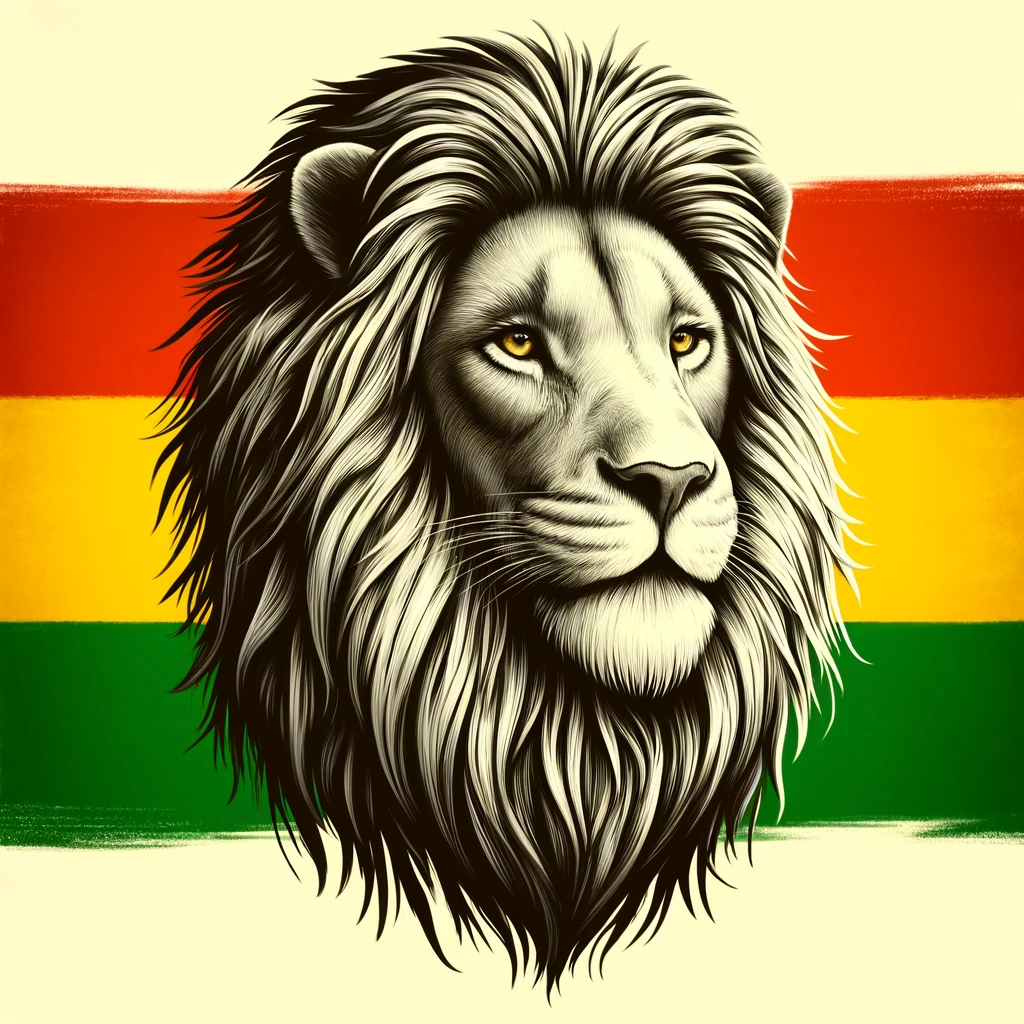Introduction: The lion, often referred to as the Lion of Judah, holds a profound place in Rastafari culture. This majestic animal is more than just a symbol; it represents strength, courage, and the divine authority of Haile Selassie I. Let’s dive into the rich symbolism of the lion and its significance in the Rastafari movement.
Historical Roots: The lion’s association with Rastafari stems from biblical references, particularly in the Book of Revelation, where it is said that the Lion of Judah will break the seven seals and bring salvation. This imagery was embraced by Rastafarians, who see Emperor Haile Selassie I, the former ruler of Ethiopia, as the embodiment of this prophecy. Selassie, also known as Ras Tafari, traced his lineage back to the tribe of Judah, hence the lion’s deep connection to his identity.
Symbol of Strength and Resilience: In Rastafari culture, the lion is a powerful symbol of strength and resilience. It represents the ability to overcome obstacles and stand firm in the face of adversity. This symbolism resonates deeply with the Rastafari community, who have historically faced oppression and marginalization. The lion’s unwavering spirit serves as an inspiration to remain strong and resilient in the struggle for justice and equality.
Spiritual Significance: The lion is also a symbol of spiritual awakening and divine authority. Rastafarians believe that Haile Selassie I is a manifestation of Jah (God) on Earth. The lion, as a representation of Selassie, embodies the divine qualities of leadership, wisdom, and protection. Rastafarians often use the imagery of the lion in their art, music, and rituals to invoke these spiritual attributes.
Cultural Impact: The lion’s symbolism extends to various aspects of Rastafari culture. It is prominently featured in the Rastafari flag, which consists of the colors red, gold, and green. The lion, often depicted holding a scepter, stands as a guardian of these colors, each of which holds its own significance—red for the blood of martyrs, gold for the wealth and prosperity of Africa, and green for the lushness of the land. The lion also appears in reggae music, literature, and art, reinforcing its powerful presence within the culture.
Closing Thoughts: The lion is a potent symbol in Rastafari culture, embodying strength, spiritual authority, and resilience. It serves as a reminder of the divine connection to Haile Selassie I and the enduring spirit of the Rastafari people. By embracing the symbolism of the lion, Rastafarians draw strength and inspiration to continue their journey of faith, unity, and empowerment.

